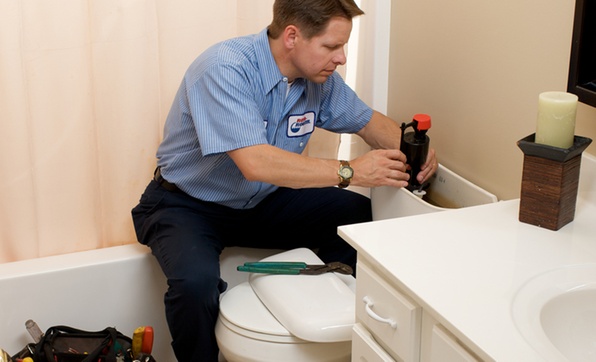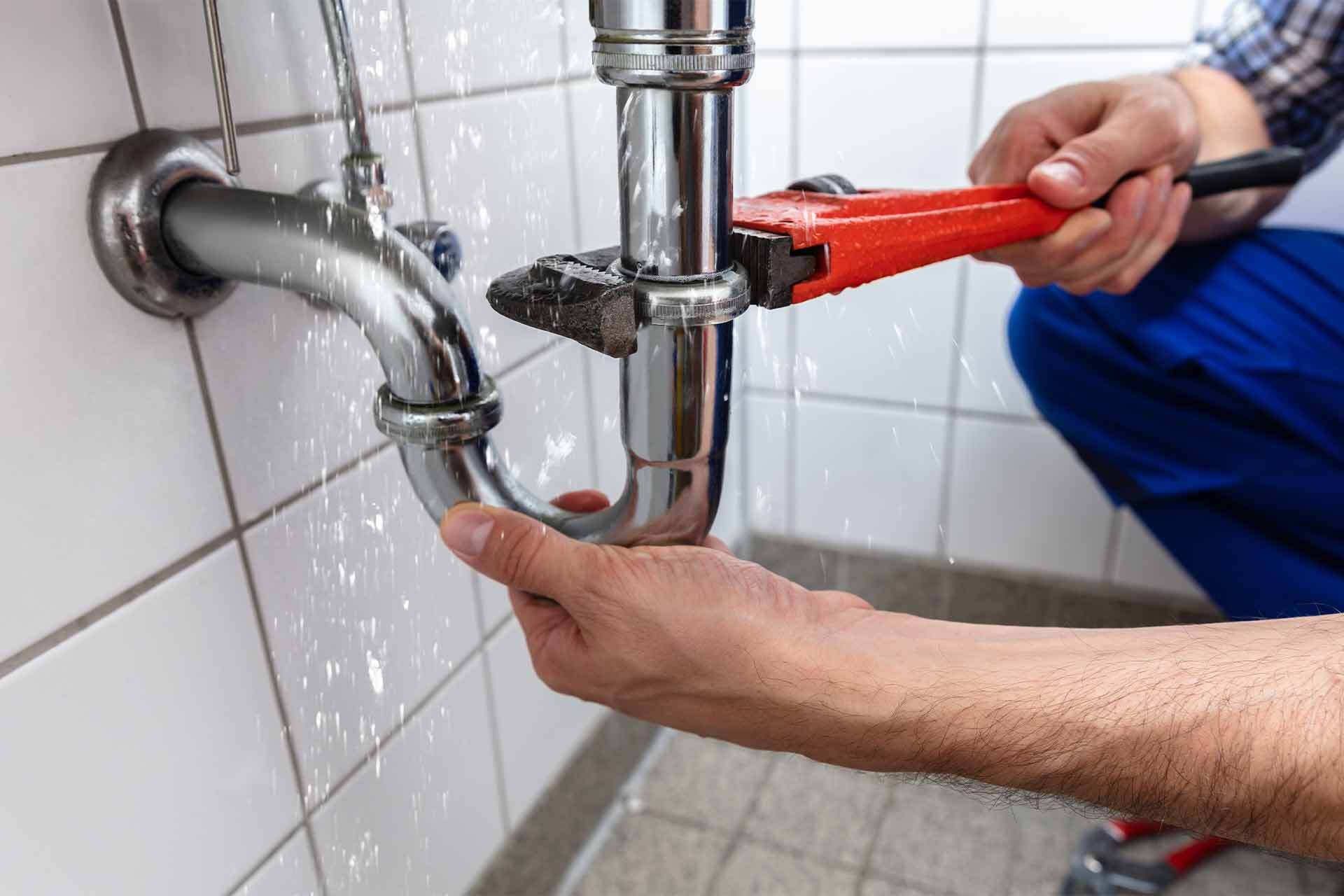New Homeowner's Guide to Bathroom Plumbing: Top Tips
New Homeowner's Guide to Bathroom Plumbing: Top Tips
Blog Article
The publisher is making several good points regarding 11 Must-Read Tips for Plumbing a New House overall in the article further down.

For brand-new home owners, understanding and keeping bathroom plumbing can save both money and time by avoiding costly problems down the line. Right here are some vital shower room plumbing suggestions to help you keep everything running smoothly.
Familiarize Yourself with the Main Shut-Off Shutoff
Recognizing where the main water shut-off shutoff lies in your home is crucial. This allows you to quickly shut off the water system in case of significant leakages or throughout pipes emergency situations, stopping substantial water damages.
Consistently Evaluate for Leakages
Tiny leakages can result in huge issues. Regularly check under sinks, around toilets, and near plumbing components for any type of indications of leaks. Look for wetness, tiny drips, or corrosion. Catching and fixing leakages early can protect against extra significant damages and save water.
Don't Overlook Slow Drains
If your sink or bathtub is draining pipes gradually, it's usually an indicator of a blockage forming. Resolving this early can prevent a full obstruction. Utilize a plunger or a plumber's snake to clear out particles. Stay clear of making use of chemical drain cleaners as they can harm your pipes gradually.
Know What Not to Flush
Bathrooms are not garbage disposals. Stay clear of flushing anything other than bathroom tissue and human waste. Products like wipes, womanly hygiene items, and cotton bud should be disposed of in the garbage to prevent blockages and sewer back-ups.
Install Strainers in Drains
Location strainers in your sink and bath tub drains to capture hair and other debris prior to they enter your plumbing system. Cleansing the strainers on a regular basis will aid stop buildup and maintain water flowing easily.
Maintain Your Hot Water Heater
Ensure your hot water heater is readied to a suitable temperature level (generally about 120 levels Fahrenheit) to prevent scalding and minimize power usage. Flush the container each year to get rid of debris build-up, which can decrease the effectiveness and life-span of your heater.
Update Your Fixtures
If your home has older components, think about updating to a lot more effective designs. Modern toilets, showerheads, and taps are made to use less water while offering great pressure, which can dramatically decrease your water bill and environmental footprint.
Beware with DIY Pipes Repairs
While it's alluring to handle all home repair services on your own, beware with plumbing. Some problems could need specialist competence, especially if they include main water lines or drain repair services. Hiring a professional can often be extra affordable than DIY, particularly if it protects against more damage.
Prepare for Winter
Protect your pipes from cold throughout winter by shielding pipelines in unheated locations like cellars, attic rooms, and garages. Throughout severe cool, let cold water drip from faucets offered by revealed pipelines to assist stop cold.
Schedule Regular Maintenance
Think about scheduling annual evaluations with a certified plumbing professional. They can detect concerns that you could miss out on, such as concealed leaks or deterioration on pipelines and fixtures. Normal upkeep helps extend the life of your pipes system and can stop emergencies.
Verdict
Recognizing and maintaining your home's restroom plumbing can prevent numerous common concerns. By complying with these necessary tips, you can guarantee your bathroom continues to be functional and efficient, saving you money and time over time.
Essential Plumbing Tips for Homeowners: What You Should Know
Plumbing issues can be a nightmare if left unattended, often resulting in costly repairs and significant damage to your home. That's why it's crucial for homeowners to arm themselves with the essential home plumbing maintenance tips and knowledge to prevent such mishaps and maintain the efficiency of their plumbing system.
?Get to know the various aspects of residential plumbing maintenance, from identifying warning signs of potential issues to simple tasks you can perform to keep your plumbing in top condition. By empowering you with the necessary plumbing tips for homeowners in this guide, we will help you tackle everyday plumbing challenges with confidence to keep your home's plumbing system flowing smoothly.
Mastering Home Plumbing Tips
Understanding the basic home plumbing tips allows homeowners to detect issues early on, take prompt action, and prevent them from becoming major headaches. With this proactive approach, homeowners can save both time and money.
Moreover, having a grasp of plumbing basics enables homeowners to communicate effectively with plumbers or other professionals when seeking assistance. Being able to accurately describe the problem and understand the proposed solutions not only streamlines the repair process but also helps homeowners make informed decisions about their plumbing systems.
Whether it's discussing drainage solutions, leaky taps, or fixture installations, a solid understanding of basic home plumbing maintenance tips promotes better collaboration between homeowners and professionals to ensure that repairs or upgrades meet the homeowner's needs and expectations.
Home Plumbing Maintenance Tips
Here are some basic yet essential home plumbing tips to keep your plumbing in its tip-top shape:
Be Cautious During Renovations
When renovating your home, be mindful of the location of pipes to avoid accidentally damaging them. Plan your renovations carefully and, if unsure, consult a professional plumber to help identify potential hazards.
Avoid Flushing Trash Or Wipes Down Drains
Flushing items like wipes, sanitary products, or paper towels down the toilet can lead to clogs and damage to your plumbing system. Dispose of these items properly in the trash.
Know The Location Of The Water Mains Cut-Off
In case of a plumbing emergency, such as a burst pipe, knowing the location of the water mains cut-off valve can help minimise damage by quickly shutting off the water supply to your home.
Avoid Chemical Drain Cleaners
Chemical drain cleaners can damage pipes and harm the environment. Instead, use natural alternatives like a mixture of baking soda and vinegar or get help from a qualified plumber for stubborn clogs.
Check Seals And Connections Regularly
Inspect seals and connections around sinks, toilets, and appliances for signs of leaks or damage. Address any issues promptly to prevent water damage and mould growth.
https://www.eze-flowplumbing.com.au/essential-plumbing-tips-for-homeowners-what-you-should-know

View More Report this page